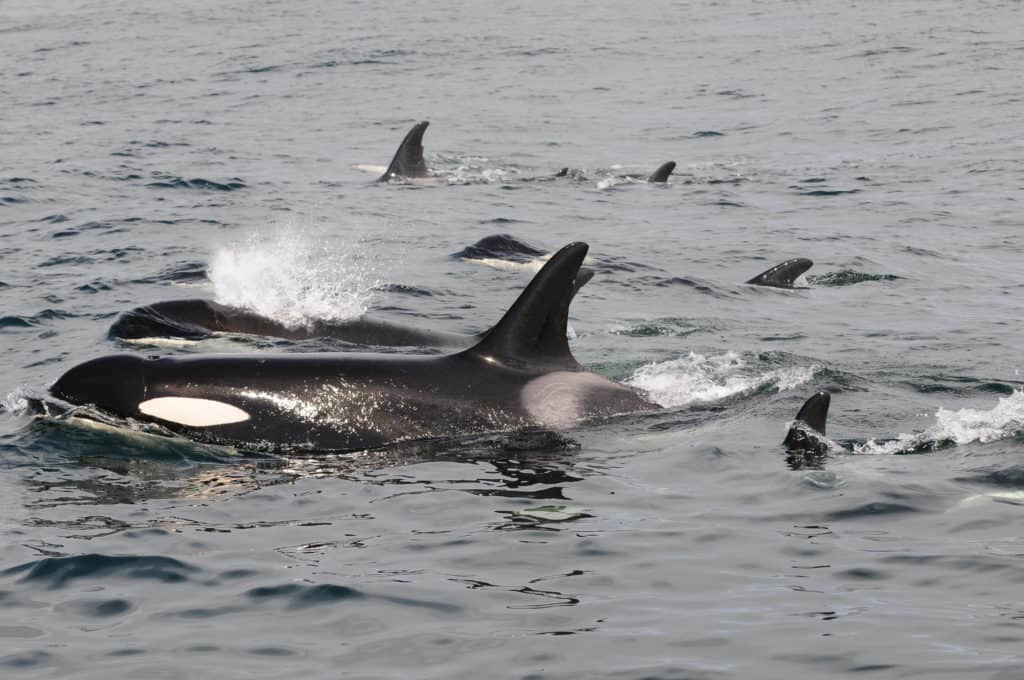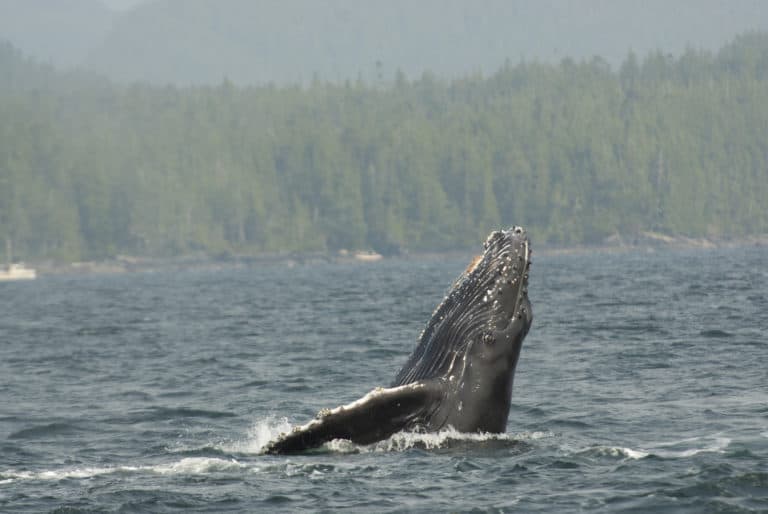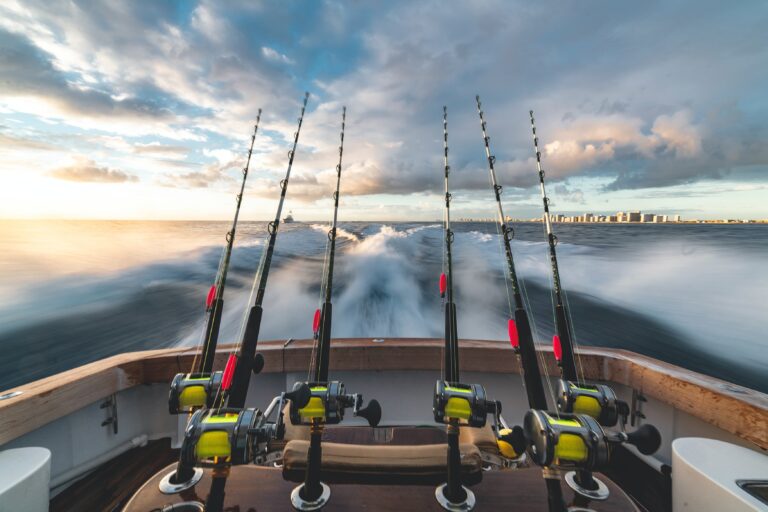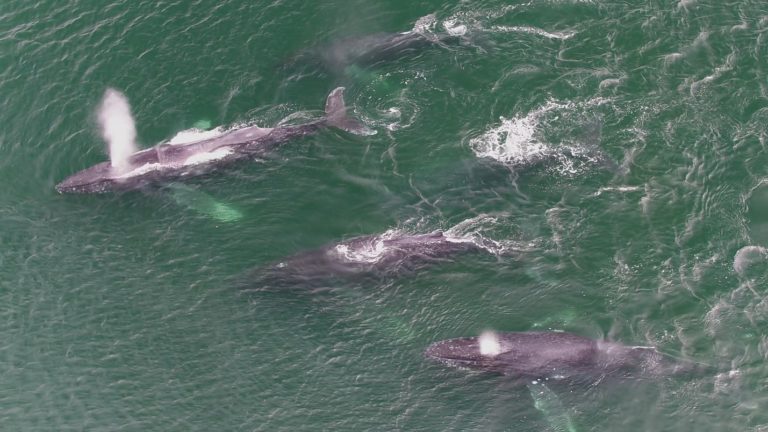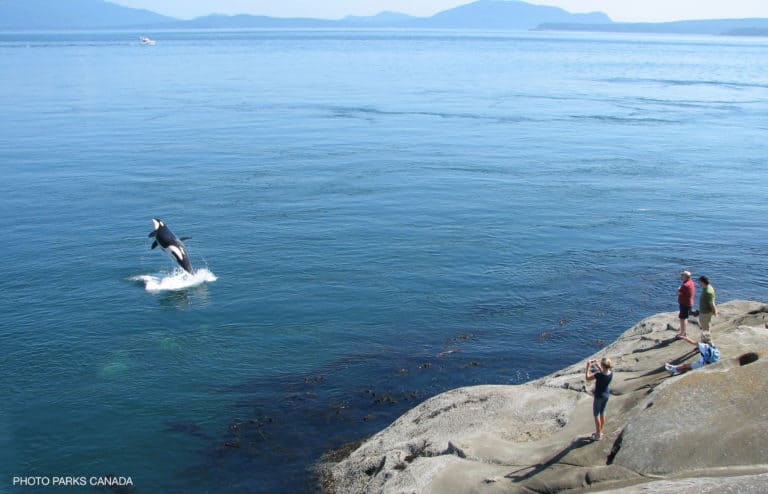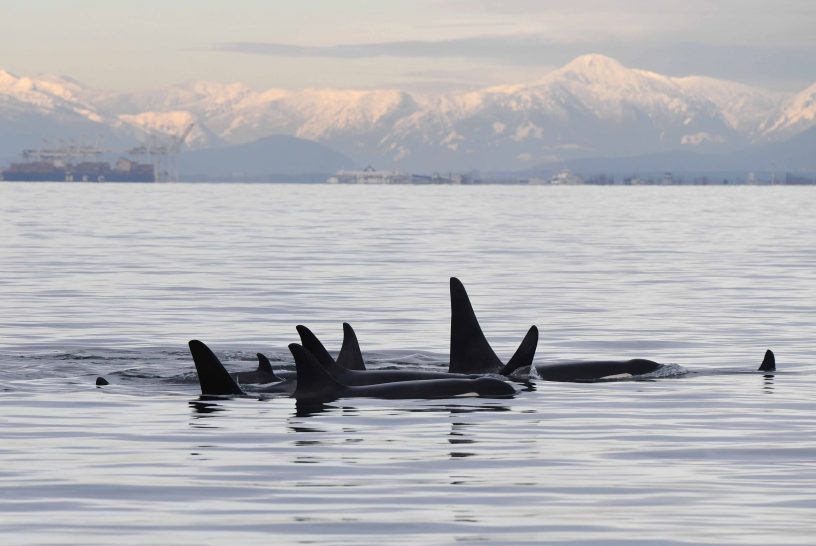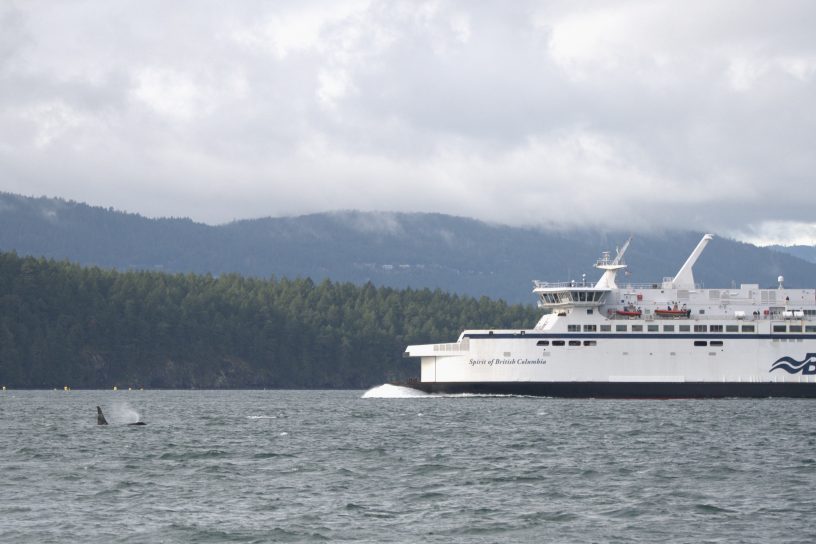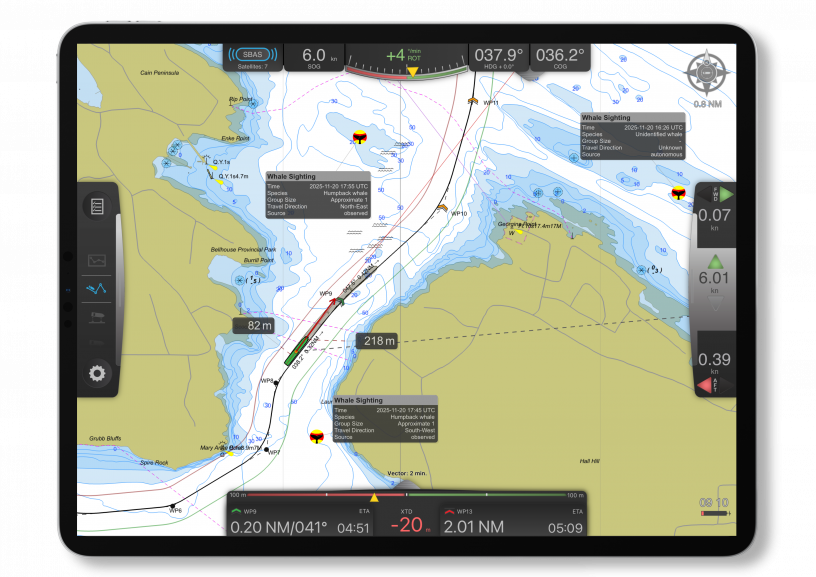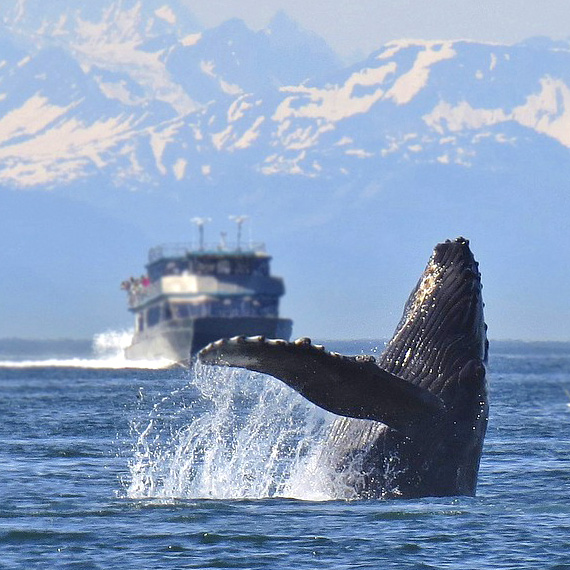North Coast and Proud

The North Coast of British Columbia (BC) is wild, raw, and full of life. It’s a place that grabs hold of you and doesn’t let you go. What makes it truly special is not just what it is today, but the incredible stories of resilience and recovery that inspire hope for our future.
Nestled on the North Coast of BC just below the Alaskan border is one of the most biologically diverse environments on Earth, BC’s North Coast. The importance of this place reaches far beyond the shoreline. The North Coast supports rare species and habitats, anchors the life cycles of marine giants, and acts as a powerful engine for carbon cycling and climate regulation. Protecting this region isn’t just a local responsibility; it’s a global necessity.
A Biological Treasure Trove
The landscape of BC’s North Coast is full of contrasts and richness, encompassing much of the Northern Shelf Bioregion – one of the richest marine ecosystems in the world. Deep fjords and submarine canyons create entire vertical worlds underwater, each layer home to different species. Kelp forests, capable of absorbing carbon up to 20 times faster than trees, and eelgrass meadows serve as vital nurseries for recovering populations of Pacific salmon and Dungeness crab. On the windswept islands of Haida Gwaii, approximately 50% of the world’s Murrelets return each year to nest, while at risk grey whales stop annually to feed in nearshore bays. In the waters of Hecate Strait and Queen Charlotte Sound, ancient glass sponge reefs, once thought to have gone extinct 40 million years ago, are alive and thriving. At the heart of region is its lifeblood: salmon. The mighty Skeena River is Canada’s second-largest salmon producer, carrying all five Pacific salmon species. Over 137 species, from killer whales to bears, rely on salmon for survival. Salmon are more than just fish; they’re the foundation of life itself on the North Coast. Together, the North Coast’s vital marine habitats and iconic species sustain regional fisheries and coastal communities, making its protection both biological and cultural imperative.
A Story of Resilience
Sadly, North Coast ecosystems face growing threats. Increased ship traffic, overharvesting of fish, habitat loss, warming waters, pollution, and chronic underwater noise are placing increasing pressures on many marine populations, some of which are already in decline. Pacific herring stocks remain vulnerable, and salmon runs in rivers like the Skeena and Nass have shown worryingly low returns. Shoreline modifications and pollution are disrupting critical habitat for fish and invertebrates, while vessel interactions with whales – who travel through these waters to feed, breed, and raise their young – have increased in recent years. What gives us hope is that North Coast conservation efforts are working.
Once completely wiped out from these shores, sea otters have made a remarkable comeback around Haida Gwaii. This success stems from the community-driven management plan developed by the Council of the Haida Nation and Parks Canada in 2020, which promotes coexistence between local communities and sea otters – restoring cultural connections and supporting healthy ecosystems.
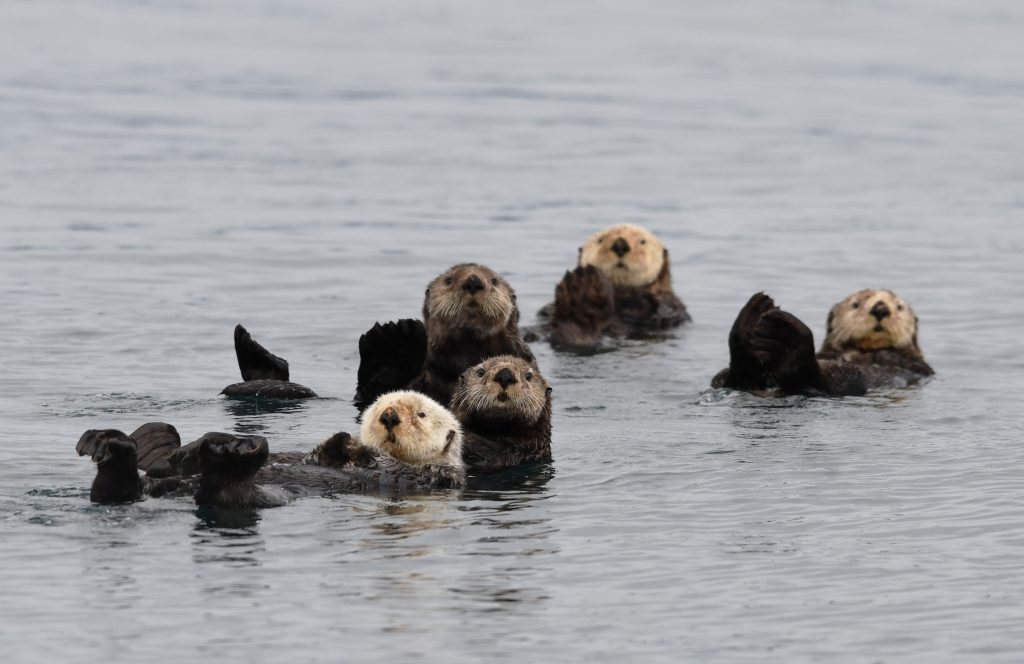
Similar trends have been observed in fin whales, once decimated by industrial whaling until it ceased in the Canadian Pacific Ocean in 1967. In recent years, a combination of Indigenous communities, federal agencies, non-profit organizations, academic researchers, and local individuals have documented the return of fin whales to BC waters, including the Great Bear Rainforest. North Pacific humpback whales, hunted to an estimated 1,200 – 1,600 individuals, are also returning in greater numbers – their songs humming through the waves again. An increase in whale populations is not only vital for species recovery, but it also plays a key role in supporting the health of the entire ecosystem. As ecosystem engineers, their movements stir ocean layers, their waste fertilizes plankton (which produces much of the oxygen we breathe), and their presence anchors food webs from krill to salmon to seabirds. These comebacks are a powerful reminder that conservation efforts work, not only benefiting target species but also strengthening the broader marine ecosystem.
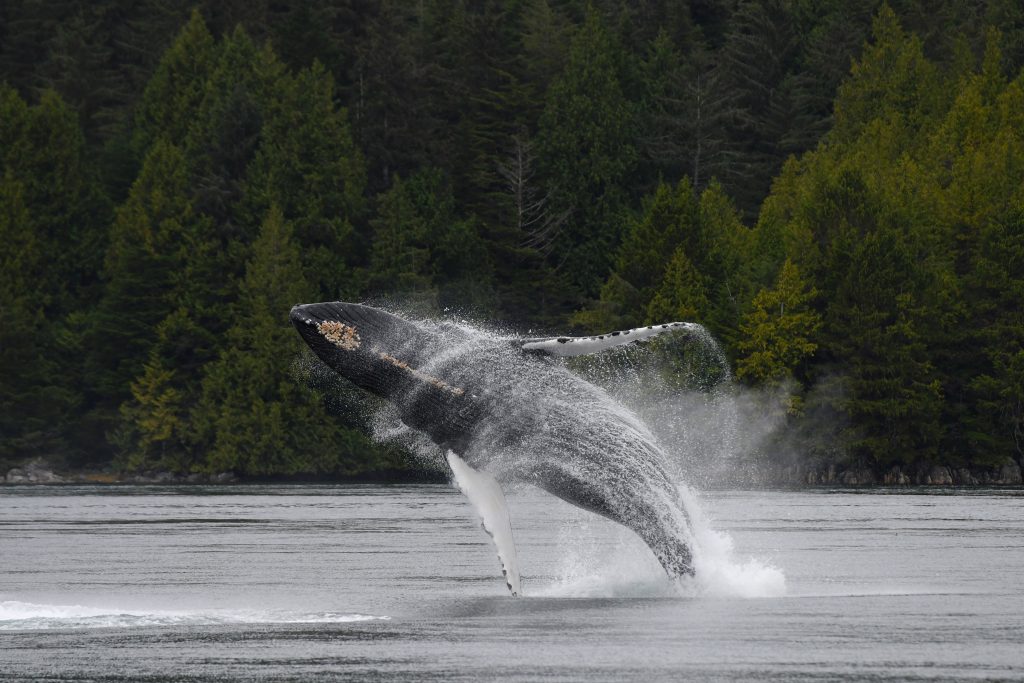
Helping Nature Heal
First Nations on this coast have long been guardians of the ocean, guided by knowledge passed down through generations. Today’s western science is catching up to what these communities have known all along: this coast is irreplaceable.
Science shows that Marine Protected Areas (MPAs) can increase fish populations by over 400% and play a key role in climate resilience and biodiversity conservation. On the North Coast, they also represent something more: a path forward where traditional knowledge and science come together to protect a globally significant marine ecosystem – as observed with sea otters around Haida Gwaii.
Long before colonial conservation designations, First Nations on the North Coast have sustainably managed marine resources since time immemorial. Traditional laws and practices like seasonal closures, no-take zones, and clam gardens helped maintain ecological balance. This stewardship laid the foundation for and continues to be important in today’s marine protection work.
In 2023, the Government of Canada, the Province of BC, and First Nations released the Network Action Plan for MPAs across the Northern Shelf Bioregion. Spanning more than 102,000 square kilometers from northern Vancouver Island to the Alaska border, this network represents a globally significant effort to protect biodiversity while supporting sustainable coastal economies. Collaborative First Nations Governance Partners on the Network Action Plan include:
- Central Coast: Kitasoo Xai’xais, Heiltsuk, Nuxalk and Wuikinuxv First Nations, supported by the Central Coast Indigenous Resource Alliance (CCIRA).
- North Coast: Gitga’at, Gitxaala, Kitsumkalum, Kitselas, Haisla, and Metlakatla First Nations.
- Haida Gwaii: Council of the Haida Nation.
- North Vancouver Island: Mamalilikulla, Tlowitsis and Wei Wai Kum First Nations, as represented by the Nanwakolas Council, and Kwiakah First Nation.
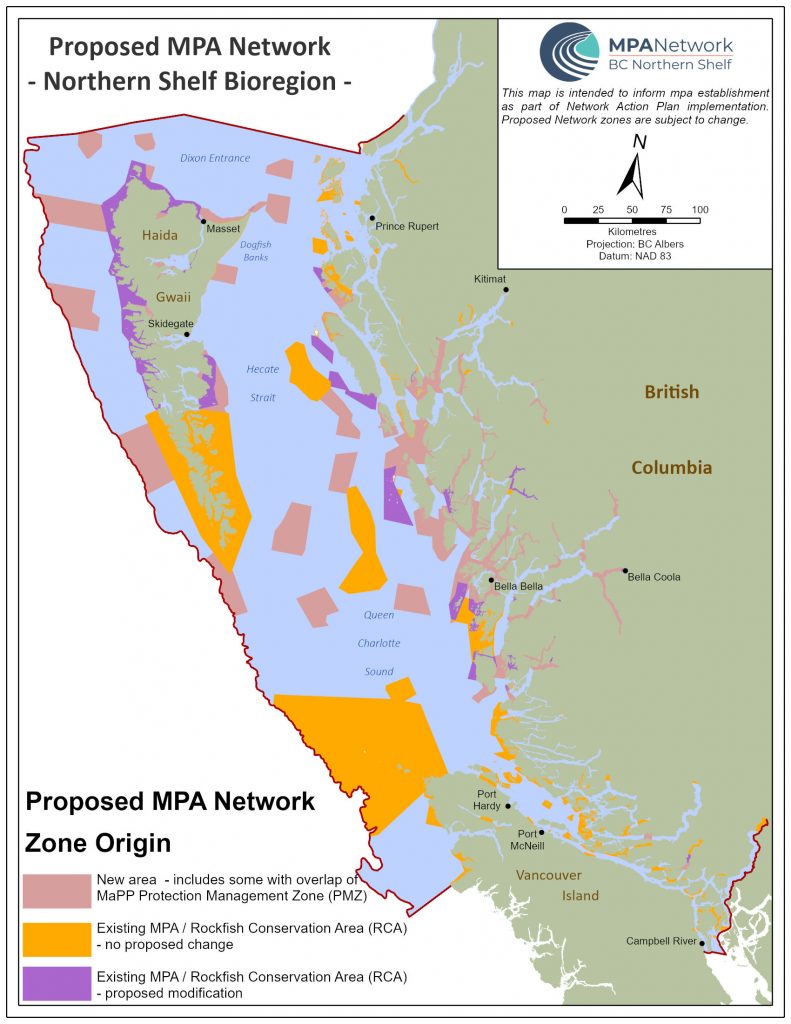
Protecting the North Coast requires a renewed commitment to community-led stewardship and science-based management. By working with community groups and regional partners, protection efforts can be strengthened and made more effective. Many dedicated individuals and organizations along BC’s North Coast are working tirelessly to protect the coastline they love.
One example of industry stepping up to safeguard marine life is the Prince Rupert Port Authority. Through its support of marine mammal initiatives like the Whale Report Alert System, the Port of Prince Rupert has played a key role in reducing impacts on local populations. BC Whales, a non-profit organization, also takes a community-based approach to conservation by conducting research in partnership with the Gitga’at First Nation to protect whales, dolphins, and porpoises along BC’s North Coast. Most recently, the Gitga’at Nation, BC Whales, and WWF-Canada have collaborated to manage whale-vessel interactions by establishing an acoustic monitoring network that detects when whales are present in the shipping lanes used by vessels transiting to and from Kitimat. Similarly, the non-profit SkeenaWild works with Indigenous partners to support to recovery of salmon populations and their habitats. This includes developing guidelines for responsible mining, sustainable forestry, and improved management of fisheries and estuaries.
Stewards of Our Future
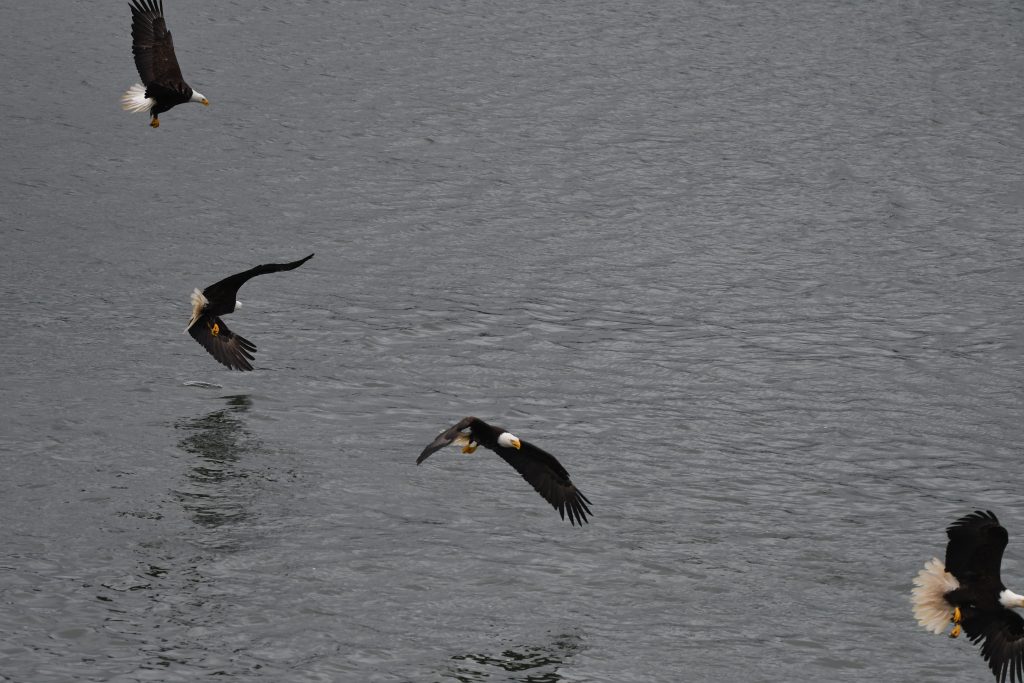
Our past shows us that when we choose to act, recovery is possible. By supporting conservation, collaborating with First Nations, communities, and local organizations, we can help ensure that the North Coast remains a place of resilience, wonder, and hope for generations to come.
Stewardship starts with awareness, grows with action, and thrives in community. On BC’s North Coast, that community is strong, resilient, and ready to rise.
Whether you’re a boater, fisher, paddler, or community member, your actions matter. Every small act adds up. Be a steward of your community by:
- Supporting Indigenous-led conservation
- Choosing sustainable seafood
- Reducing your plastic footprint
- Slowing down and be vigilant around whales
- Reporting whale, dolphin, and porpoise sightings through the Ocean Wise Whale Report app
- Using the SkeenaWild Fishing app to stay informed on salmon returns and regulations
Posted October 28, 2025 by Nic Schulz
